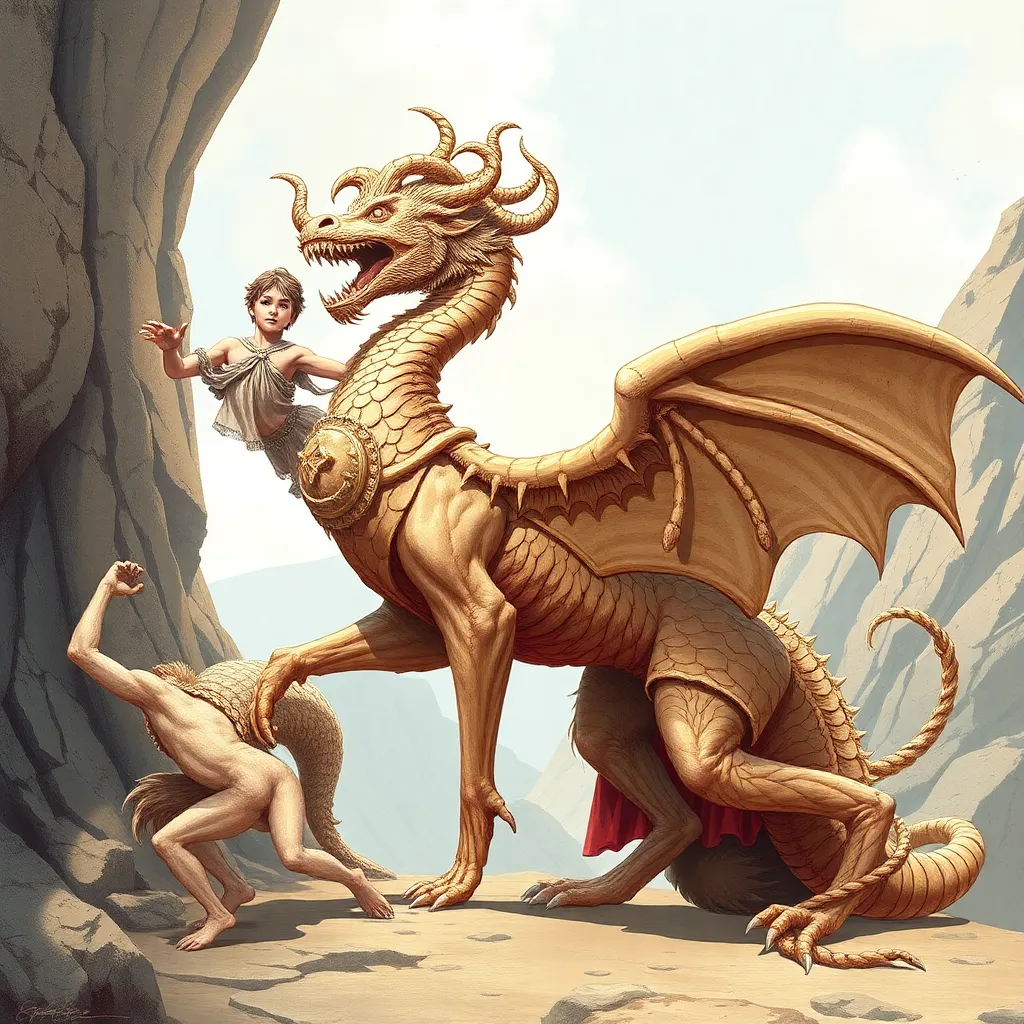The Role of Mythological Creatures in Greek Mythological Education
I. Introduction
Greek mythology is a rich tapestry of stories filled with gods, heroes, and mythical creatures that have captivated audiences for centuries. Mythological creatures are defined as beings that embody various aspects of nature, human emotion, and societal values, often serving as allegories in ancient tales.
The importance of studying Greek mythology lies not only in understanding ancient cultures but also in gaining insights into human psychology, ethics, and the evolution of storytelling. This article aims to explore the role of mythological creatures in Greek mythology, particularly in educational contexts. We will delve into their historical significance, their symbolic meanings, and how they are employed as educational tools today.
II. Historical Context of Greek Mythology
A. Origins of Greek mythology
The origins of Greek mythology can be traced back to the early Greek civilizations, where oral traditions prevailed. These stories were passed down through generations, often evolving in response to the cultural and social dynamics of the time.
B. The role of mythology in ancient Greek culture
Mythology played a crucial role in ancient Greek culture, serving as a means to explain natural phenomena, teach moral lessons, and reinforce social norms. Festivals, rituals, and artistic expressions often revolved around these myths.
C. Transition from oral tradition to written texts
With the advent of writing, many of these oral traditions were recorded, beginning with works such as Homer’s epics and Hesiod’s “Theogony”. This transition allowed for a more standardized understanding of the myths, which became foundational texts for Greek education.
III. Key Mythological Creatures and Their Significance
A. Overview of prominent mythological creatures
- Centaurs: Half-human, half-horse beings known for their wild nature and wisdom.
- Sirens: Enchanting creatures whose songs lured sailors to their doom.
- Minotaurs: Beastly creatures with the body of a man and the head of a bull, symbolizing the chaos within civilization.
B. Symbolic meanings of these creatures
Each of these creatures carries profound symbolic meanings. For instance, centaurs often represent the struggle between civilization and barbarism, while sirens embody temptation and the perils of desire. The Minotaur serves as a metaphor for the darker aspects of human nature.
C. Their roles in mythological narratives
These creatures are not mere figures of folklore; they play pivotal roles in various myths, influencing the journeys of heroes and shaping the moral landscapes of their stories.
IV. Mythological Creatures as Educational Tools
A. Use of creatures in storytelling and education
Mythological creatures serve as engaging elements in storytelling, capturing the imagination of students and providing a framework for discussing complex themes. They allow educators to introduce difficult concepts in a relatable manner.
B. Engaging students through mythological narratives
Using narratives that involve these creatures can stimulate interest and foster a deeper understanding of the content. Students can analyze the motivations and consequences of characters’ actions, leading to critical thinking.
C. Lessons and morals derived from creature-related myths
Many myths featuring these creatures impart valuable lessons. For example, the story of the Minotaur teaches about the importance of facing one’s fears, while the tale of the Sirens warns against succumbing to temptation.
V. Mythological Creatures in Modern Education
A. Incorporation of Greek mythology in contemporary curricula
Greek mythology continues to be a staple in modern educational curricula, often included in literature, history, and art classes. It provides students with insights into ancient civilizations and their philosophies.
B. Adaptations of myths in literature, art, and media
Modern adaptations of Greek myths can be found in literature, films, and even video games, allowing these ancient stories to resonate with contemporary audiences. Works like Rick Riordan’s “Percy Jackson” series have introduced mythology to younger generations.
C. Impact of modern interpretations on understanding mythology
These adaptations not only entertain but also spark renewed interest in the original myths, encouraging further exploration and study of Greek mythology in educational settings.
VI. Psychological and Cultural Implications
A. Archetypal analysis of mythological creatures
Mythological creatures embody archetypes that reflect universal human experiences. Analyzing these creatures through the lens of psychology can reveal deep-seated fears, desires, and motivations present in human nature.
B. Influence on cultural identity and values
The narratives surrounding these creatures contribute to cultural identity, instilling values and norms that have persisted throughout history. They serve as a mirror reflecting societal attitudes and beliefs.
C. Psychological lessons conveyed through mythological narratives
Mythological narratives often convey psychological lessons about perseverance, identity, and the struggle between good and evil, making them relevant to modern audiences.
VII. Challenges in Teaching Greek Mythology
A. Misinterpretations and misconceptions about mythological creatures
One of the challenges in teaching Greek mythology is the prevalence of misinterpretations. Many students may have preconceived notions about creatures based on popular culture that differ from their original mythological contexts.
B. Balancing historical accuracy with creative storytelling
Educators must find a balance between historical accuracy and the creative liberties taken in retellings. This requires a nuanced approach to ensure students understand both the myths and their cultural significance.
C. Addressing cultural sensitivities in modern contexts
As societies evolve, it’s essential to address cultural sensitivities related to the themes and portrayals of mythological creatures, ensuring that discussions are respectful and inclusive.
VIII. Conclusion
In summary, mythological creatures play a significant role in the education of Greek mythology, serving as valuable tools for storytelling and moral lessons. Their lasting legacy continues to influence contemporary society, fostering a deeper understanding and appreciation of Greek culture.
As we explore these fascinating narratives, we not only connect with the ancient world but also gain insights into our own human experiences.




